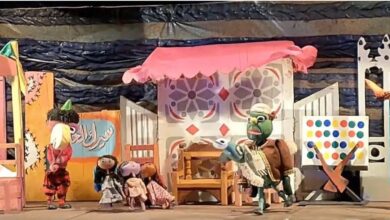This Ramadan, several TV series discuss the 18 months that followed the 25 January revolution, which has stumbled out of direction. One of those series is “Firqet Nagy Atallah” (Nagy Atallah’s Brigade), starring superstar Adel Imam.
The series’ main point is to emphasize that Israel is the real enemy of the Egyptian people. What it aims to do is to overstate the power of the external enemy, and while doing so, it underestimates the internal threats to Egypt’s democratic transition.
That Israel is a prime enemy is unquestionably true, but we should not forget that a corrupt regime led by Hosni Mubarak and his mob was among the archenemies of Egyptians. We should also remember that there are other enemies who emerged from among the ranks of the security apparatus who tortured, suppressed and killed people. They shot them in the eyes and harassed girls and boys to punish Egyptians for carrying out a revolution against their oppressors, and to halt the revolution.
Those enemies also include the counter-revolutionary elements that ignited fires across the country, stirring up daily traffic, water, electricity and garbage issues. They also worked to exacerbate the breakdown of the security apparatus and created all the factors for chaos, inciting and deepening sectarian conflicts.
It is no secret that armed elements of the so-called deep state carried out a devious plot to foil the revolution, exploiting the technical and media cadres of Mubarak’s tottering regime. That scheme was most probably financed by businessmen who flourished under that corrupt regime. But the Ramadan drama of “Firqet Nagy Atallah” takes us back to decades of state propaganda that aimed at directing the nation’s anger toward Israel as the only real threat, while ignoring the crimes of Egypt’s authoritarian rule.
Another series that attempts to divert attention away from the internal enemies is “Al-Safaa” (The Slap). That series attempts to reinstitute confidence in the General Intelligence Services after it was accused of concealing information about the infamous Battle of the Camel and other plots to abort the revolution.
“Taraf Talet” (Third Party) runs the same theme, this time featuring thugs and focusing on exposing their human side in an attempt to gain viewers’ sympathy and thus stimulate a nationwide historical amnesia by erasing all the crimes they committed against revolutionaries. Those paid thugs were instrumental in aiding state institutions of the police, army and media in suppressing the revolution.
Paid thugs were employed by the deep state, specifically during the revolution, to kill the revolutionaries, harass them, tarnish their image and create a state of chaos to spread fear and place the blame on the revolution, turning the public against the revolutionaries.
Throughout the “Taraf Talet” series, there is an attempt to pass on the idea that footage depicting members of the army committing violations against protesters were fabricated by “foreign powers” seeking to harm Egyptians and turn them against their military. Again, the conspiratorial theme of the foreign threat/enemy informs the direction of TV dramas this Ramadan.
“Al-Baltagy” (The Thug) is another series that carries the same features of the aforementioned TV dramas. It hopes to present the human side of a baltagy to gradually eliminate the stigma attached to this livelihood.
In essence, there is nothing wrong with presenting the human side of a criminal or in producing a complex representation of this classification of baltagy, but the drama is alarming particularly because of the romanticization of thuggery. This romanticization could possibly manipulate the historical memory and narrative of the revolution — an issue that requires further investigation.
But what we can be certain of is that more than LE1 billion has been spent to produce these Ramadan series, which calls into question the producers’ intention to influence the views of the audience and weave a particular historical narrative of the revolution. TV dramas are only a first step in shaping the nation’s history and memory, and the coming days will show how the new rulers in Egypt will attempt to impose their own narrative, in which political Islam will play an important role.
Ahmed Zakaria is a political activist.
Translated by Dina Zafer.




